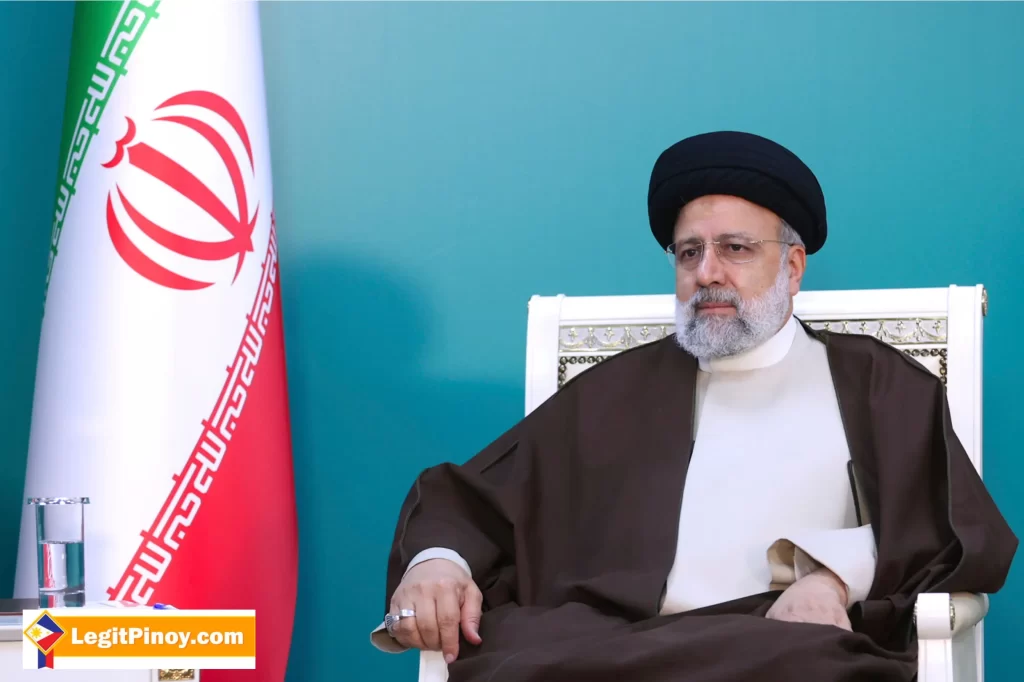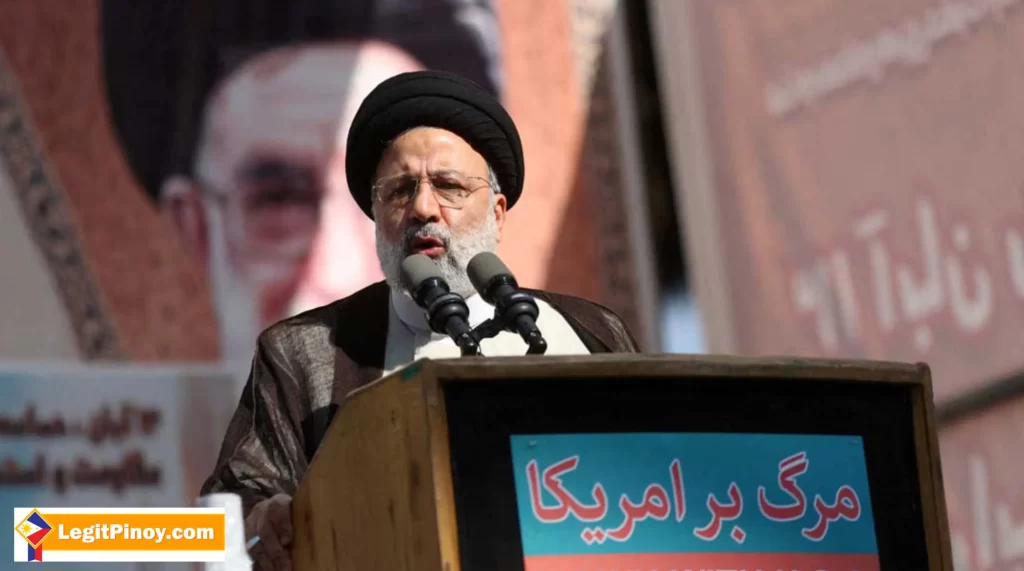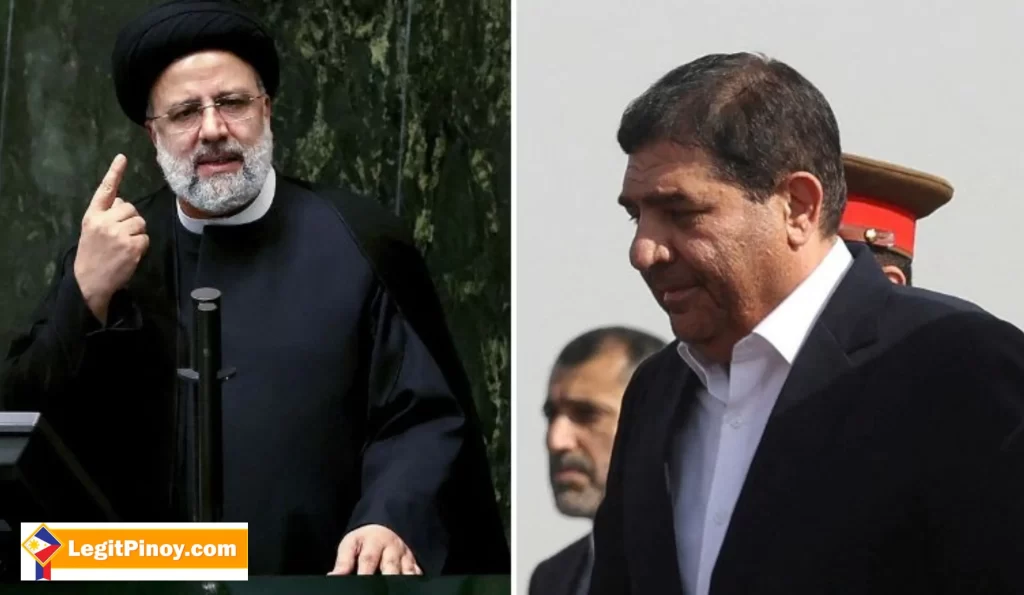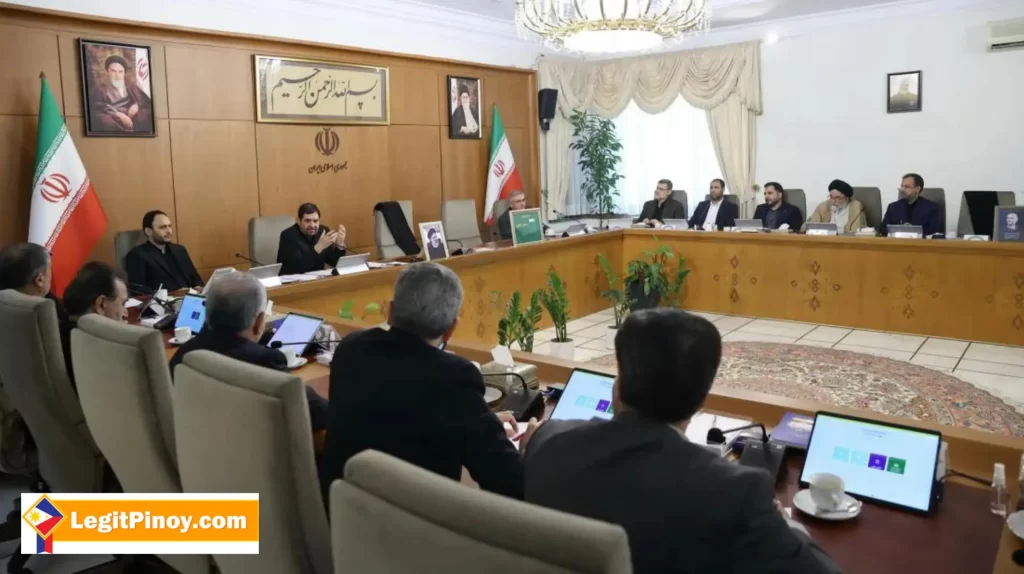Iran President killed in Helicopter crashed 2024

Iran President, Ebrahim Raisi tragically perishes in a helicopter crash in 2024, leaving the nation in mourning and sparking questions about the future leadership of the country.

Ebrahim Raisi
The helicopter carrying Iran’s president, Ebrahim Raisi, and foreign minister, Hossein Amirabdollahian, crashed in a densely fogged, mountainous terrain of the country’s East Azerbaijan province on Monday. Both men have been officially declared dead. There were six other fatalities in the chopper, including crew members.
Ebrahim Raisi was traveling on a Bell 212, a two-blade aircraft produced in the United States that was probably decades old. Iran has faced difficulties obtaining aircraft parts and new aircraft as a result of international sanctions that date back to the 1979 revolution, as well as restrictions imposed on the country due to its nuclear program and support of the so-called Axis of Resistance.
Iran’s economy has continued to suffer since the United States imposed its first sanctions on the country 45 years ago, with its airlines being particularly hard hit.
However, Iran’s difficult geopolitical neighborhood, particularly its contentious ties with the US and Israel, have also resulted in fatal mistakes that have claimed hundreds of lives.
ADVERTISEMENT


The deaths of Iranian Foreign Minister Hossein Amirabdollahian and President Ebrahim Raisi occurred on Sunday in a helicopter crash in the region of East Azerbaijan, Iran.
The Details: Interior Minister Ahmad Vahidi suggested that dangerous weather could have contributed to the disaster, and Iran’s official media confirmed the deaths on Monday. The supreme leader’s envoy to the region and the governor of East Azerbaijan were among the nine passengers who perished. After attending the launching of a new dam near the border with Azerbaijan, the group was on their way home.
For Context: The supreme leader is the highest ranked government official in Iran, followed by the president. Ayatollah Khameini, Iran’s supreme leader, declared five days of national mourning and recognized Vice President Muhammad Mokhber as the country’s acting president. The Constitution of Iran
ADVERTISEMENT


What happens when Ebrahim Raisi, the president of Iran, gets replaced?
Iran’s foreign minister and other individuals, including President Ebrahim Raisi, perished in a Sunday helicopter crash, official state media announced on Monday morning. Ebrahim Raisi, a 63-year-old hardline Islamic cleric, had been mentioned as a potential Ayatollah Ali Khamenei successor.
Ebrahim Raisi is not the final decision-maker in the Islamic republic; that role falls on all presidents who have held office since the 1979 Islamic Revolution that installed the ayatollahs. At eighty-five, Khamenei is the nation’s second supreme leader and the ultimate authority for all government officials, the armed forces, and law enforcement.

Mohammad Mokhber
Following his official appointment by Ayatollah Khamenei, First Vice President Mohammad Mokhber became the interim president of Iran on Monday in accordance with the country’s constitution. According to state media, Mokhber had been fielding calls from foreign governments and officials even before to Khamenei’s announcement of his temporary position.
Asserting that Ebrahim Raisi’s route will be followed, the Iranian cabinet declared in a statement following its meeting on Monday that “with the help of God and the people, there will be no problem with management of the country.”
The Islamic Republic’s ultimate judge of internal and international matters, Supreme Leader Ayatollah Ali Khamenei, appointed Mohammad Mokhber, who had been Ebrahim Raisi’s vice president, as interim president on Monday.
Sanam Vakil, head of the Middle East and North Africa program at Chatham House, a London think tank, described Mokhber as “another administrator,” referring to him as less well-known than Raisi, to CNN’s Becky Anderson. Vakil stated, “He is close to the IRGC, close to the levers of power,” and predicted that in the days to come, he will likely promote a “business as usual” paradigm.
Experts predict that there will likely be low voter turnout and a hurried election process. In March, Iran saw the lowest voter participation since the Islamic Republic was established in 1979, despite efforts by the administration to mobilize supporters prior to the election.
Hardline politicians predominated in the ballot, which was for seats in the Majles, the parliament, and the 88-member Assembly of Experts, which chooses the Supreme Leader.
Co-founder and Executive Vice President of the Quincy Institute for Responsible Statecraft in Washington, DC, Trita Parsi wrote on Sunday on X that “the population has by and large lost faith in the idea that change can come through the ballot box.”
However, the nation is legally required to hold elections within the following fifty days. According to Iranian state news IRNA on Monday,

About Ebrahim Raisi
Ebrahim Raisi, 63, a staunch conservative who once oversaw the nation’s court, is thought of as Khamenei’s protégé. Some observers have speculated that in the event of Khamenei’s demise or resignation, Raisi might succeed the 85-year-old leader.
The lowest turnout in the history of the Islamic Republic of Iran resulted in Ebrahim Raisi’s winning the 2021 presidential election. U.S. sanctions against Raisi stem, in part, from his role in the 1988 brutal conclusion of the Iran-Iraq war, which resulted in the mass execution of thousands of political detainees.
Since taking office, Ebrahim Raisi has allowed Iran to obstruct international inspections and enrich uranium to almost weapons-grade levels. Iran is fighting Hamas in the Gaza Strip, and it has armed Russia in that conflict as well as launched a huge drone and missile offensive on Israel.
Ebrahim Raisi is an Iranian politician and jurist who has held various positions of power within the Iranian government. He has served as the Chief Justice of Iran since 2019. Raisi has been involved in Iranian politics for several decades and has held positions in the judiciary, including as Attorney General and Deputy Chief Justice. He has also been involved in the religious and political establishment of Iran.
Raisi gained international attention when he ran for President of Iran in 2017, although he was not successful in that election. However, he ran again in the 2021 presidential election and won, becoming the President of Iran. His presidency marks a significant shift in Iranian politics, as he is seen as a conservative figure with close ties to the country’s Supreme Leader, Ayatollah Ali Khamenei.
Raisi’s presidency has been closely watched by the international community, particularly regarding its implications for Iran’s domestic policies, its relations with other countries, and its nuclear program.
ADVERTISEMENT

People Also Asked
Is Iran a democratic country?
The Iranian people have been working toward democracy for more than a century. However, the Iranian people have been subjected to an authoritarian theocracy known as the “Islamic Republic” for the last 40 years following the overthrow of the Shah, with a religious “Supreme Leader” in charge of all facets of Iranian life.
Who replaces the Iranian president?
First Vice President Mohammad Mokhber was officially appointed by Ayatollah Khamenei on Monday, in accordance with the country’s constitution, and he assumed the role of acting president.
Who is current rule in Iran?
Ayatollah Ruhollah Khomeini, who presided over the Islamic Republic from 1979 until his death in 1989, and Ayatollah Ali Khamenei, who has done so ever since Khomeini’s passing, are the two Supreme Leaders of the Islamic Republic.
What religion is in Iran?
According to a World Values Survey survey conducted in 2020, 96.6% of Iranians identify as Muslims. The official state religion of Iran, Shia Islam, is practiced by 90–95% of Iranian Muslims, while Sunni and Sufi Islam is practiced by 5–10% of them, according to the CIA World Factbook.
Is Iran a powerful country?
Due to its vast fossil fuel reserves—which include the second-largest proven oil and natural gas reserves in the world—its strategic location, its military prowess, its influence over the region, and its position as the global hub of Shia Islam, Iran is a powerful regional force.
Is Iran a dictatorship country?
The theocratic republic of Iran is ruled by an authoritarian state that bases its laws and regulations on Ja’fari Shia Islam.
Who is ruling Iran?
JERUSALEM — Iran’s overall policies and governing structure are set by Supreme Leader Ayatollah Ali Khamenei, thus it is doubtful that the passing of the country’s president will have an immediate impact on either.
Who is the famous leader of Iran?
The Islamic Republic of Iran has only had two Supreme Leaders in its history: Ali Khamenei, who has maintained the role for more than 30 years after Khomeini’s passing, and Khomeini, who served in that capacity from 1979 until his death in 1989.
Who is Iran’s strongest ally?
Syria. Iran and Syria are allies strategically. Despite the Arab nationalism of the Baath party in power, Syria is sometimes referred to as Iran’s “closest ally”.
Does Iran accept Christians?
The government only acknowledges the Christianity of citizens who are Armenian or Assyrian Christians, as their presence in the nation predates Islam, or of citizens who can demonstrate that they or their families were Christians. This is because the law forbids citizens from converting from Islam to another religion.
Interesting Topics
- Bucks Vs Pacers
- Bucks Vs Pavers Games 6
- 76ers-vs-knicks
- NAIA Terminal Fire 3
- The princess Diaries 3
- One Piece Season 2
- Labour Day
- orange-and-lemons-vs-francine-diaz
- Hermilando Mandanas
- cebu-pacific
- Civil Service Commission
- Louis Vuitton
You may also Like
- Ayalawin Casino
- surewin casino
- Stellar 7s
- golden-casino
- rainbow-spin
- PH Fun
- 777-rainbow-re-spin
- Boss Fun
- Bet787
- 49jili
- Boss 888

Bea Kristine, she’s a passionate writer with a keen interest in online casinos and gaming. She strives to create compelling and informative content for readers interested in the online gaming industry. Her goal is to provide valuable insights and engaging stories that resonate with her audience, helping them make informed decisions and enhance their gaming experience.
